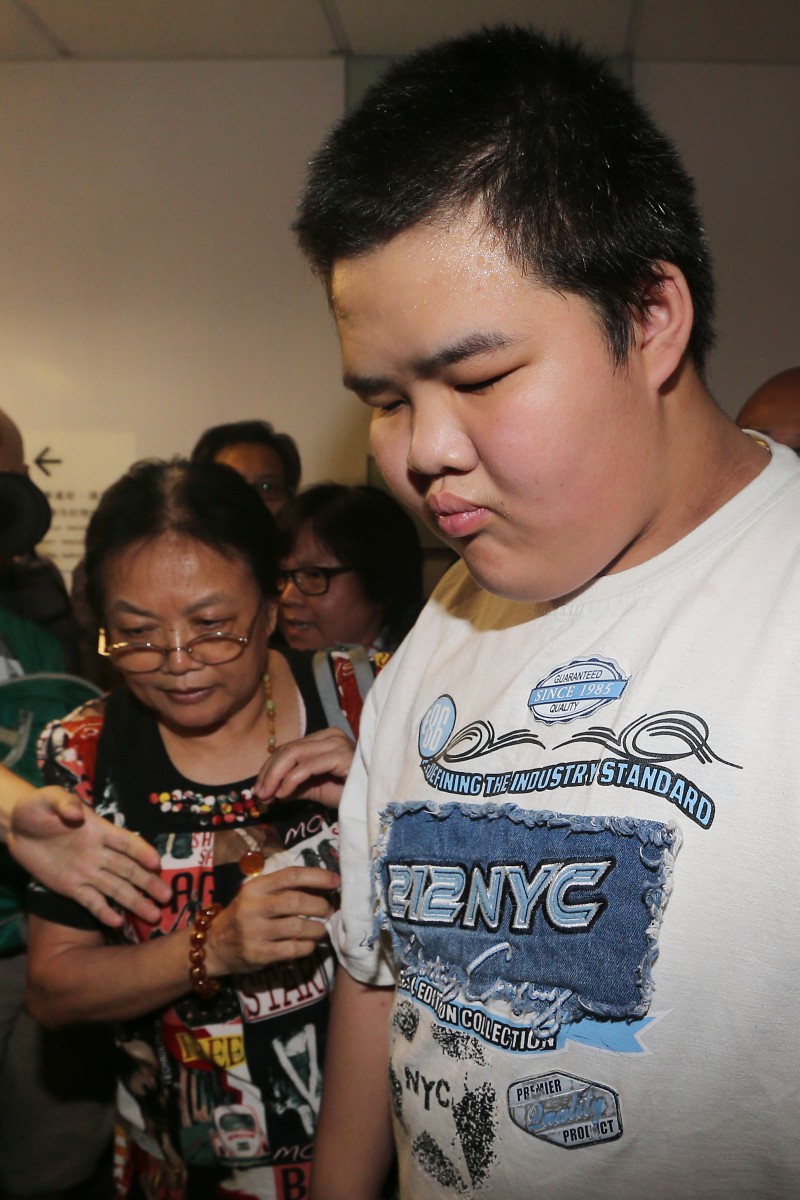
Siu Yau-wai broke the law, but he should have been allowed to stay
 12-year-old boy Siu Yau-wai (Front) and his grandmother Chow Siu-shuen (Back), arrive the immigration department office in Kowloon Bay. Siu lived in Hong Kong for nine years without documentation.
12-year-old boy Siu Yau-wai (Front) and his grandmother Chow Siu-shuen (Back), arrive the immigration department office in Kowloon Bay. Siu lived in Hong Kong for nine years without documentation.The case of 12-year-old Siu Yau-wai and his illegal overstay in Hong Kong has broken the internet faster than Kim Kardashian. Very much like the “It Girl” (in more ways than one), the boy’s case has managed to polarise public opinion, dividing society yet again.
Many people – including myself – feel sympathy for him. His parents abandoned him soon after his birth; his grandmother, who is supporting him with her old-age allowance, is his only remaining family member. Having no legal documentation (prior to his grandmother’s appeal for help), he was “akin to a stateless person”, according to his lawyer.
However, it’s easy to see why the Immigration Department’s decision to award Yau-wai with temporary papers has caused so much anger: he and his grandmother were on the wrong side of the law, after all. The boy had overstayed his two-way permit, which was obtained using an alias.
Said critics also believed that granting Yau-wai a permit to stay in Hong Kong would “put us on the slippery slope where increasing numbers of mainland parents would be ‘abandoning’ their kids at the border to enjoy education and residency in Hong Kong”.
It’s easy to dismiss the critics as bigoted, mainland-hating conservatives, but this is clearly not the case here (at least for some of them). They, for once, have reason to be concerned. There is a possibility that other “copycat” mainlanders might see this case and try to make similar requests in order to gain citizenship in Hong Kong.
Yet, I still strongly believe that the Immigration Department was right in granting him temporary citizenship. As a person who has faith and trust in Hong Kong’s rule of law, I feel confident that the justice system will be able to distinguish between genuine cases (such as that of Yau-wai) from blatant attempts by undocumented immigrants to “cheat” the government into granting them citizenship.
It is also true that other people may use this case to their advantage through the “if-him-why-not-me-too” fallacy in a poor attempt to gain a similar permit, but such a move is not likely to succeed – especially after all the uproar and discontent we’ve seen from this case.
Although the law has indeed been violated by Yau-wai and his grandmother, we must still deal with their case with compassion. The law is meaningless if it fails to account for human emotion and adapt to unique conditions (such as that of the boy). Legal decisions aren’t mechanical and the law is never as simple as black and white – it’s the reason why we have courts, judges, and juries.
Someone who acts within the boundaries of the law may not be just; someone who is just in their intent may not be working within the constraints of the law. If we are to make the law completely synonymous with justice, we must continue to act with caution and empathy.